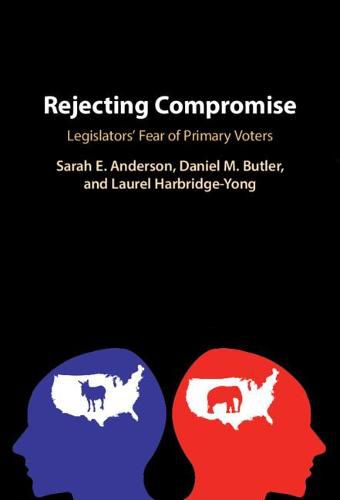Readings Newsletter
Become a Readings Member to make your shopping experience even easier.
Sign in or sign up for free!
You’re not far away from qualifying for FREE standard shipping within Australia
You’ve qualified for FREE standard shipping within Australia
The cart is loading…






Legislative solutions to pressing problems like balancing the budget, climate change, and poverty usually require compromise. Yet national, state, and local legislators often reject compromise proposals that would move policy in their preferred direction. Why do legislators reject such agreements? This engaging and relevant investigation into how politicians think reveals that legislators refuse compromise - and exacerbate gridlock - because they fear punishment from voters in primary elections. Prioritizing these electoral interests can lead lawmakers to act in ways that hurt their policy interests and also overlook the broader electorate’s preferences by representing only a subset of voters with rigid positions. With their solution-oriented approach, Anderson, Butler, and Harbridge-Yong demonstrate that improving the likelihood of legislative compromise may require moving negotiations outside of the public spotlight. Highlighting key electoral motives underlying polarization, this book is an excellent resource for scholars and students studying Congress, American politics, public policy, and political behavior.
$9.00 standard shipping within Australia
FREE standard shipping within Australia for orders over $100.00
Express & International shipping calculated at checkout
Legislative solutions to pressing problems like balancing the budget, climate change, and poverty usually require compromise. Yet national, state, and local legislators often reject compromise proposals that would move policy in their preferred direction. Why do legislators reject such agreements? This engaging and relevant investigation into how politicians think reveals that legislators refuse compromise - and exacerbate gridlock - because they fear punishment from voters in primary elections. Prioritizing these electoral interests can lead lawmakers to act in ways that hurt their policy interests and also overlook the broader electorate’s preferences by representing only a subset of voters with rigid positions. With their solution-oriented approach, Anderson, Butler, and Harbridge-Yong demonstrate that improving the likelihood of legislative compromise may require moving negotiations outside of the public spotlight. Highlighting key electoral motives underlying polarization, this book is an excellent resource for scholars and students studying Congress, American politics, public policy, and political behavior.